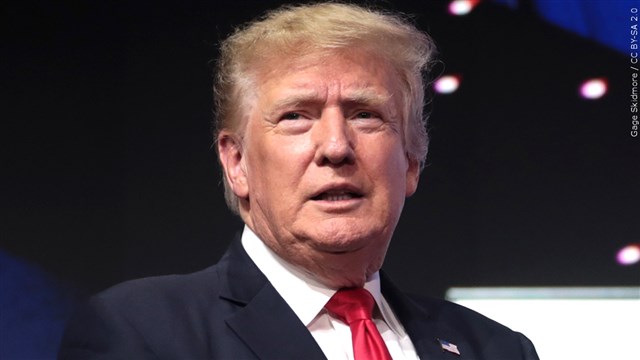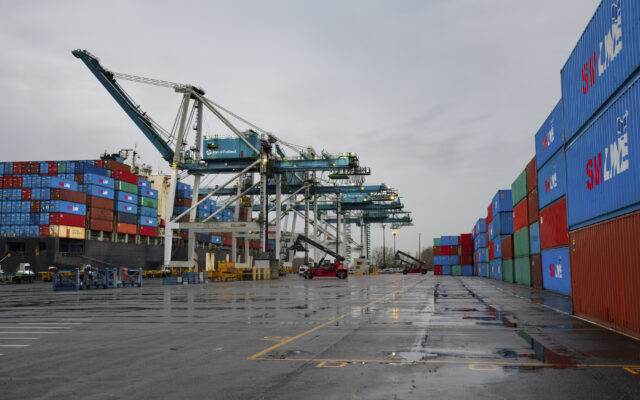WikiLeaks Founder Julian Assange Arrested by London police

London (CBS NEWS) WikiLeaks founder Julian Assange arrested by London police at Ecuadorian embassy London’s Metropolitan Police confirmed on Thursday that they had arrested WikiLeaks founder Julian Assange at the Ecuadorian Embassy in the British capital. The arrest came after Ecuador dropped Assange’s asylum status, effectively evicting him from their embassy.
The police later confirmed that he was also placed under arrest “on behalf” of U.S. law enforcement authorities, who had filed a formal extradition request.
Video captured by Russian news agency Ruptly showed police removing Assange, 47, from the embassy on Thursday in handcuffs. His hair appeared to have grown significantly longer and whiter since his last appearance, and he had a long grey beard.
The police said they were “invited into the embassy by the Ambassador, following the Ecuadorian government’s withdrawal of asylum.” Ecuador’s government said it had dropped it’s protection of Assange, “for repeatedly violating international conventions and protocol of coexistence.”
Assange was granted asylum by Ecuador in 2012 as he faced allegations of sex crimes in Sweden that he said were a guise to extradite him to the U.S. That case has been dropped, but he was still subject to arrest for dodging the warrant in the first place.
U.S. officials keep quiet
CBS News sought comment from U.S. law enforcement agencies on Thursday as London police confirmed they had placed Assange under arrest, in part “on behalf of the United States authorities” pertaining to an official extradition request, but the FBI, National Security Agency and Justice Department had little to say.
The statement by the London Metropolitan Police confirming that Assange had been “arrested in relation to an extradition warrant on behalf of the United States authorities” was the first official confirmation from either side of the Atlantic of an official extradition request.
It remained unclear what charges Assange was facing in the U.S., but a court document published in “error” last year, in an unrelated case in Virginia, suggested strongly that prosecutors had prepared charges against him under seal — something sources would not deny to CBS News.
Both the Departments of Justice and State told CBS News they were aware of Assange’s arrest, but referred to U.K. authorities for further information.
Britain’s Foreign Secretary Jeremy Hunt said in a statement that Assange was “no hero.”
“He has hidden from the truth for years and years and it is right that his future should be decided in the British judicial system,” Hunt said. “This will now be decided properly, independently by the British legal system respected throughout the world for its independence and integrity and that is the right outcome.”
“We’re not making any judgement about Julian Assange’s innocence or guilt,” Hunt added, “that is for the courts to decide. But what is not acceptable is for someone to escape facing justice and he has tried to do that for a very long time.”
Could Swedish rape case reopen?
The lawyer for the woman who claims Assange raped her in Sweden in 2010 said in a tweet on Thursday that she and her team would “do everything we possibly can to get the Swedish police investigation re-opened so that Assange can be extradited to Sweden and prosecuted for rape. No rape victim should have to wait 9 years to see justice be served.”
The case against Assange in Sweden was dropped by prosecutors in May 2017 — not because of any conclusion about his guilt or innocence, but because they accepted there wasn’t any reasonable chance of prosecuting him as he remained holed-up in London.
Lawyer Elisabeth Massi Fritz said it had, “understandably come as a shock to my client that what we have been waiting and hoping for since 2012 has now finally happened.”
The woman has claimed Assange had sex with her without a condom while she was asleep. In Sweden, having sex with an unconscious, drunk or sleeping person can lead to a rape conviction punishable by up to six years in prison.
A Swedish investigation into the crimes was launched, then dropped for lack of evidence, and then started again as prosecutors sought to question Assange, before it was officially shelved by the Swedish prosecution service in May 2017.
Assange, WikiLeaks and Russia
Ousted Attorney General Jeff Sessions last year declared the arrest of Assange, for leaking confidential U.S. diplomatic cables, remained a priority for the Justice Department.
Special counsel Robert Mueller had also been investigating whether Trump campaign associates had advance knowledge of Democratic emails that were published by WikiLeaks in the weeks before the 2016 election and that U.S. authorities have said were hacked by Russia.
Assange’s arrest, if he is indeed indicted and brought to the U.S. to face charges, could represent a significant development for ongoing congressional investigations into the Trump campaign’s actions.
WikiLeaks said it was never contacted from anyone who worked on the Mueller probe, which recently concluded and handed its report to the Justice Department. Democrats are still pushing to get the full report released by Attorney General William Barr.
WikiLeaks, the website that says its function is to “open governments,” and entities linked to the Kremlin have a relationship that goes back further than the 2016 election.
Reports in 2017 said Donald Trump Jr. occasionally corresponded with WikiLeaks on Twitter, starting in September 2016. While it doesn’t appear Trump Jr. sent any messages after Oct. 2016, WikiLeaks sent him messages through July 2017.
Those messages — which Trump Jr. disclosed in November 2017 — were turned over to congressional investigators as they investigated Russian election meddling.
According to the the widely circulated January 2017 U.S. intelligence report detailing interference in the 2016 election, U.S. intelligence officials believe with “high confidence” that there was a connection between Russian military intelligence and the entities Guccifer 2.0, DCLeaks.com and WikiLeaks that resulted in the deluge of hacked emails from the Democratic National Committee and Hillary Clinton’s associates hitting the Internet in the weeks ahead of the election.
Arrest draws backlash
While Assange’s leaking of classified U.S. diplomatic and security information has infuriated the U.S. government, his arrest has drawn loud cries from press freedom advocates who argue he provided the materials to journalists in the public’s interest.
Edward Snowden, the U.S. intelligence contractor who leaked thousands of secret documents from the National Security Agency revealing the extent of the U.S. government’s covert data gathering around the world, sent a tweet on Thursday noting that the United Nations has repeatedly called on the U.K. government to let Assange walk free, deeming his hiding in the Ecuadorian embassy an “arbitrary detention.”
Images of Ecuador’s ambassador inviting the UK’s secret police into the embassy to drag a publisher of–like it or not–award-winning journalism out of the building are going to end up in the history books. Assange’s critics may cheer, but this is a dark moment for press freedom. https://t.co/ys1AIdh2FP
— Edward Snowden (@Snowden) 11 April 2019
Snowden said Assange’s arrest marked ” a dark moment for press freedom.”
The Secretary General of Reporters Without Borders, Christophe Deloir, said Thursday that, “Targeting Assange because of Wikileaks’ provision of information to journalists that was in the public interest would be a punitive measure and would set a dangerous precedent for journalists or their sources that the US may wish to pursue in future.”
Extradition to U.S.?
British Foreign Secretary Jeremy Hunt had said Assange was a “free man” and could leave the embassy whenever he chose to do so, but his arrest has been long-expected, given the active U.K. warrant for his arrest for violating bail conditions.
On Thursday, London’s Metropolitan Police confirmed that Assange had in fact been arrested not only for violating the terms of his bail relating to the 2012 warrant, but also “on behalf of the United States authorities” pertaining to an extradition request. It was the first official confirmation of U.S. charges and an extradition request.
Ecuadorian leader Lenin Moreno has said that Britain provided sufficient guarantees the WikiLeaks founder wouldn’t be extradited to face the death penalty abroad.
But questions have been swirling about the former Australian hacker’s legal fate in the U.S., where he is believed to have been indicted on sealed charges for publishing state secrets.
Jen Robinson, a lawyer who has represented Assange, sent a tweet on Thursday saying she had confirmed that he was arrested on charges related not only to skipping bail in Britain, but “also in relation to a US extradition request.”
It still was not clear what specific charges Assange is facing in the U.S.
A U.S. official told CBS News justice correspondent Paula Reid recently that even with an official request filed with Britain, extradition is a lengthy process and the WikiLeaks boss wouldn’t likely hit U.S. soil too quickly.
That said, Britain and the U.S. do have a fast-track extradition agreement, so the process should be easier than it would be with many other nations.






